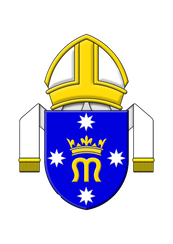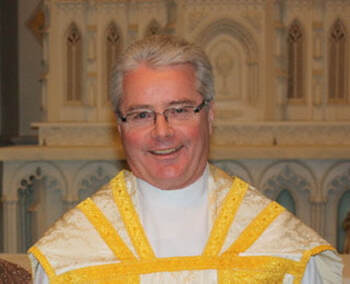Divine Office Times
Morning Prayer (Mattins)
Monday, Wednesday, and Friday: 7:25 a.m. at St Paul's Catholic Church, Mt Lawley
Evening Prayer (Evensong)
4:00 p.m. First Sunday of the Month
Monday, Wednesday, and Friday: 7:25 a.m. at St Paul's Catholic Church, Mt Lawley
Evening Prayer (Evensong)
4:00 p.m. First Sunday of the Month
A workshop on the new Divine Worship: Divine Office (Commonwealth Edition) by Parish Assistant Nigel McBain, on the Memorial of Saint John Henry Newman, 9th October 2021.
The workshop was conducted at St Paul's Mount Lawley, with parishioners. It is a presentation of how to say the Office and a little of the history and background behind it. Below is the handout that was given at the workshop:
| divine_worship_daily_office_workshop_09_oct_21.pdf | |
| File Size: | 252 kb |
| File Type: | |
Download Ordinariate Evensong Noted (with Chant Notation)
| ordiniariate_evensong_noted.pdf | |
| File Size: | 416 kb |
| File Type: | |
From the Ordinary's Preface of "Ordo 2020"
As we begin a new Church year, a brief word of encouragement to the faithful, both clergy and laity, concerning the rhythm of the Church at prayer and how each of us might, by our own involvement, contribute to the daily life of the Church as she prays.
We often hear the phrase, “fed by Word and Sacrament,” and quite reasonably our thoughts would immediately focus on our participation in the Divine Mysteries of the Holy Eucharist - the Mass. The Bishops of the Second Vatican Council called the Mass the “fount and apex of the Christian life” (Dogmatic Constitution on the Church, 21 November 1964, #11). As they under- stood the supreme importance of the Eucharist, they encouraged everyone to participate as fully as possible.
Yet not everyone in every place is able to attend Mass, particularly on weekdays when it might not be celebrated especially in smaller or remote communities.
The Daily Offices of Morning and Evening Prayer (often referred to as Mattins and Evensong) are that by which the faithful, along with the clergy who are required to pray the Offices, enter more fully into that daily rhythm of prayer. In so doing, even as we are not able to be fed by the Sacrament of the Altar, we do derive important sustenance from the written Word.
Reading from Scripture is to be commended at any time and in any place; however, the readings as laid out in the Ordo, like the readings at Mass, are intentionally sensitive to the themes of the seasons of the Church year. Further, the Old Testament and New Testament readings very often are linked typologically in terms of how the Old is fulfilled in the New. Even if one is not able to pray the full Office, this resource is of great value in thus present- ing an organised way of reading through Scripture – essentially the New Testament twice per year, and the Old once per year.
In Domino
Monsignor Carl Reid PA
Ordinary
The Personal Ordinariate of Our Lady of the Southern Cross
December 2019
As we begin a new Church year, a brief word of encouragement to the faithful, both clergy and laity, concerning the rhythm of the Church at prayer and how each of us might, by our own involvement, contribute to the daily life of the Church as she prays.
We often hear the phrase, “fed by Word and Sacrament,” and quite reasonably our thoughts would immediately focus on our participation in the Divine Mysteries of the Holy Eucharist - the Mass. The Bishops of the Second Vatican Council called the Mass the “fount and apex of the Christian life” (Dogmatic Constitution on the Church, 21 November 1964, #11). As they under- stood the supreme importance of the Eucharist, they encouraged everyone to participate as fully as possible.
Yet not everyone in every place is able to attend Mass, particularly on weekdays when it might not be celebrated especially in smaller or remote communities.
The Daily Offices of Morning and Evening Prayer (often referred to as Mattins and Evensong) are that by which the faithful, along with the clergy who are required to pray the Offices, enter more fully into that daily rhythm of prayer. In so doing, even as we are not able to be fed by the Sacrament of the Altar, we do derive important sustenance from the written Word.
Reading from Scripture is to be commended at any time and in any place; however, the readings as laid out in the Ordo, like the readings at Mass, are intentionally sensitive to the themes of the seasons of the Church year. Further, the Old Testament and New Testament readings very often are linked typologically in terms of how the Old is fulfilled in the New. Even if one is not able to pray the full Office, this resource is of great value in thus present- ing an organised way of reading through Scripture – essentially the New Testament twice per year, and the Old once per year.
In Domino
Monsignor Carl Reid PA
Ordinary
The Personal Ordinariate of Our Lady of the Southern Cross
December 2019


